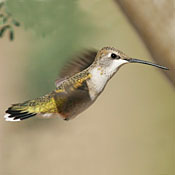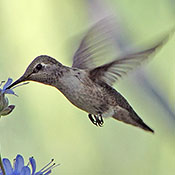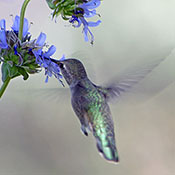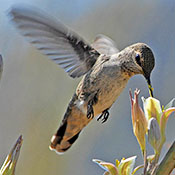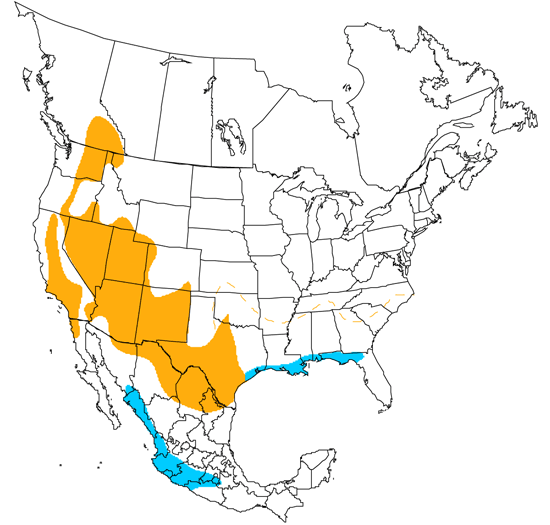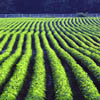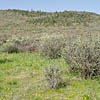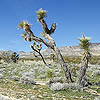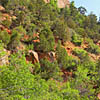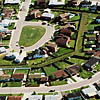Black-chinned Hummingbird
Archilochus alexandri

Hummingbird
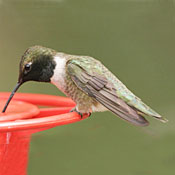
Length: 4 in. (10 cm )
This hummingbird is found in open woodland, desert scrub, parks and gardens in suburban areas. It comes readily to hummingbird feeders nears houses, and several species of cultivated flowers as well as standing water can attract it to nest near houses. It feeds on nectar from flowers, insects and spiders. The nest is a tiny cup-like affair placed on a low tree limb and made of plant down, lichens and spider webbing. Typical of hummingbirds, only the female incubates and feeds the young a regurgitated mixture of insects and nectar.
The four-digit banding code is BCHU.
Bibliographic details:
- Article: Black-chinned Hummingbird
- Author(s): Dr. Biology
- Publisher: Arizona State University School of Life Sciences Ask A Biologist
- Site name: ASU - Ask A Biologist
- Date published: 13 Jul, 2017
- Date accessed: 3 August, 2025
- Link: https://askabiologist.asu.edu/activities/bird/black-chinned-hummingbird
APA Style
Dr. Biology. (Thu, 07/13/2017 - 15:38). Black-chinned Hummingbird. ASU - Ask A Biologist. Retrieved from https://askabiologist.asu.edu/activities/bird/black-chinned-hummingbird
Chicago Manual of Style
Dr. Biology. "Black-chinned Hummingbird". ASU - Ask A Biologist. 13 Jul 2017. https://askabiologist.asu.edu/activities/bird/black-chinned-hummingbird
MLA 2017 Style
Dr. Biology. "Black-chinned Hummingbird". ASU - Ask A Biologist. 13 Jul 2017. ASU - Ask A Biologist, Web. https://askabiologist.asu.edu/activities/bird/black-chinned-hummingbird
Be Part of
Ask A Biologist
By volunteering, or simply sending us feedback on the site. Scientists, teachers, writers, illustrators, and translators are all important to the program. If you are interested in helping with the website we have a Volunteers page to get the process started.



